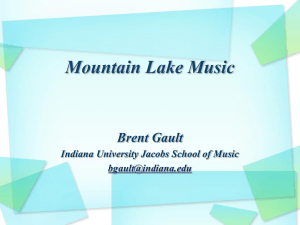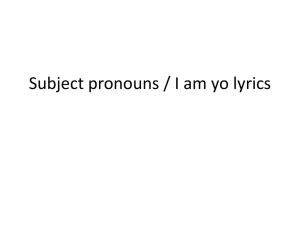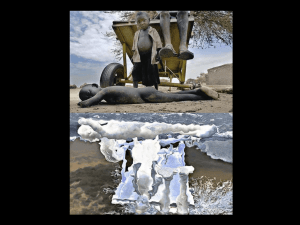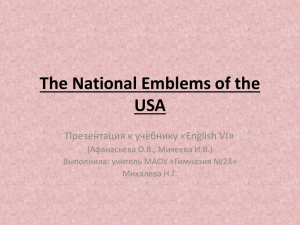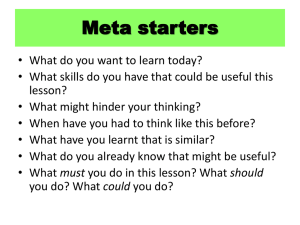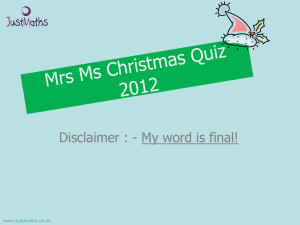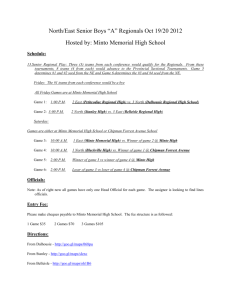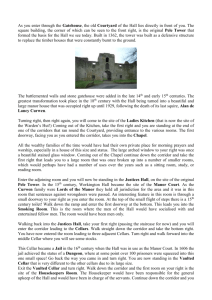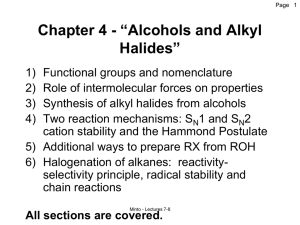Anne Goldsworthy - The Primary Science Teaching Trust
advertisement
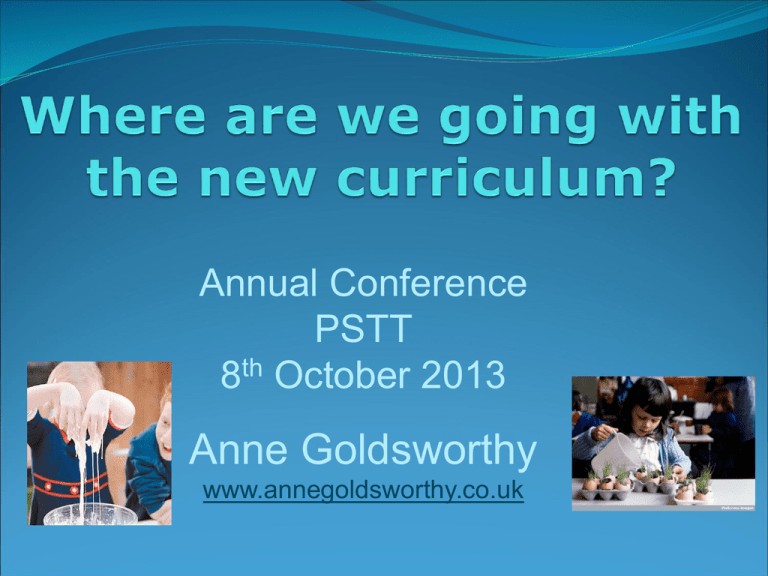
Annual Conference PSTT 8th October 2013 Anne Goldsworthy www.annegoldsworthy.co.uk The major changes More in Working Scientifically about different types of enquiry Lots more on naming and identifying living things common plants (including evergreen and deciduous trees) and animals (carnivores, herbivores and omnivores) in Y 1 & 2 especially Seasonal changes including day length in Y1 Simple digestion in Y4 Evolution and Inheritance in Y6 Thoughts on Organising your Planning (1) There are now 4 units per year group in KS 1 and 5 per year group in lower and upper KS 2 You do not have to stick to the content of the year groups as laid out in the PoS If it helps think of it in 3 stages – KS1, Lower KS2 and Upper KS2 and manipulate the units to fit in with your school Y1 (or Y2) will need to make one unit stretch across the whole year to observe changes in nature and in temperature/day length/weather through all the seasons Thoughts on Organising your Planning (2) If you do a topic per half term you will be without a science unit for one half term in KS 2 and for a term in KS 1. a) Chose topic/s to make into a double full term topics in each year b) Don’t do science in one half term or term (boo!) Or ... Use the final half term to review the science learnt in the year a) by creating a class science newspaper, video, b) c) d) e) f) cartoon or poster bank setting up outside science areas/walks linked to learning doing local visits/links with industry/local community carrying out more investigations especially those suggested by the children independent study (individual or pairs) on area of choice linked to previous learning teaching younger children things learnt in science And what about assessment? Levels removed. Schools to use their own approaches to assessment. Assessment framework should check what pupils have learned and whether they are on track to meet expectations at the end of the key stage, and to report regularly to parents. DfE to provide examples of good practice Secretary of State NCTL 'Seizing Success' conference 13 June http://www.education.gov.uk/schools/teachingandlearning/curric ulum/nationalcurriculum2014/a00225864/assessing-withoutlevels Consultation now taking place Launch Date: Wednesday 17 July 2013 Closing Date: Friday 11 October 2013 Emphasis on testing, commercial providers, and baseline assessment for making judgements about schools. And what about Ofsted? Ofsted’s inspections informed by whatever pupil tracking data schools use. Schools will continue to benchmark their performance through statutory end of key stage assessments, including national curriculum tests. Woodland trust Free trees or hedge to plant 4000 packs available http://www.woodlandtrust.org.uk/en/moretreesmoreg ood/free-trees/Pages/seeds-to-trees.aspx Providing strong crosscurricular links Growing Music WOMAD – World of Music Arts and Dance WOMAD Foundation - Using music from around the world to inspire learning, celebrate differences and break down barriers www.womadfoundation.org Annie Menter - Annie.Menter@realworld.co.uk Carol Sampey (college member) and the wonderful children of Shaw Primary School Helping them learn Find ways that get them ... To talk through what they have learnt To work with others to pick out the main points To chat about a way of presenting that shows their understanding Ways to record Children take own photos or videos Use apps e.g. Puppet pals – easy way to create scenes and record voices Radio or TV interview Do a mime Posters and Floor Books Devise lesson for younger pupils Devise a song Children as Science Ambassadors From Primary Science Teaching Trust http://www.pstt.org.uk/ South Wales – PSTT College Linda Curwen – St Fagan’s Primary School – Y3 Philippa Minto – New Inn Primary School – Y6 It worked a treat and the little ones loved it. My class really enjoyed being the teachers too. Both age groups got a lot out of it! Linda Curwen The year 6s were brilliant at explaining concepts to the year 2s and the year 2s soaked up the information and loved the hands on practical activities Phillippa Minto I also noticed that my children were adapting their 'pitch' slightly as the younger children rotated around the activities and were changing their questions to help the younger children to understand what was happening. Linda Curwen Will definitely be doing it again next year. Phillippa Minto Singing a song Ask children to devise a song about their science to the tune of a well known nursery rhyme or song Encourage them to add as many science words as they can Easy ones to do are ones that repeat lines e.g. Wheels on the bus, Hokey-Cokey, London’s Burning. In KS 1 work as a class. In KS 2 ask groups of children to make up their own science lyrics. The sun shines on the water Through the day Water vapour rises Evaporates Rain falls on the mountain Trickles down Streams turn into rivers To the sea Things get chilly Vapour cools Condensation happens Clouds get full Clouds get fuller Fit to burst Precipitation’s coming Rains in spurts Thanks to Charlotte Clarke


